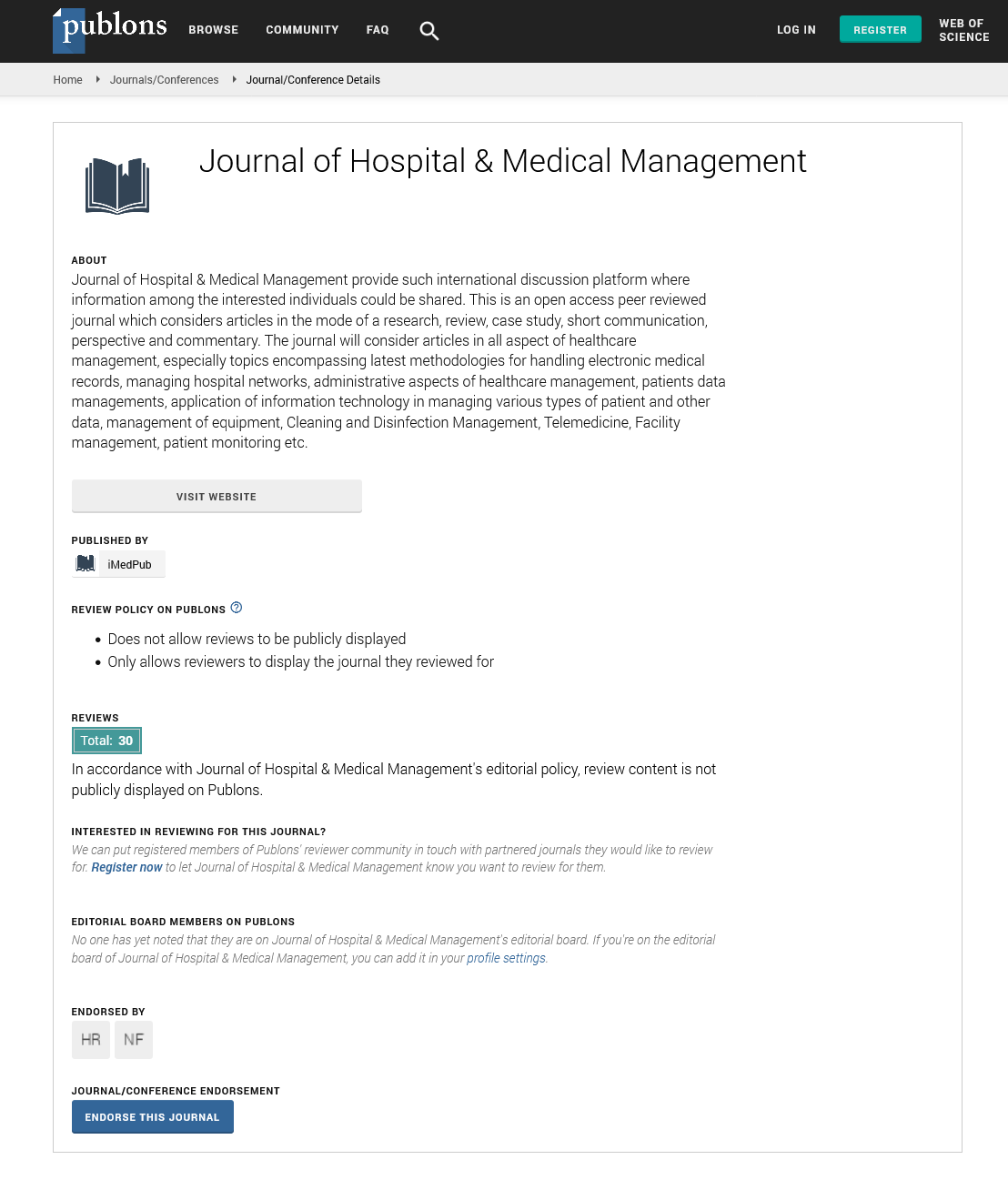Abstract
The Challenges and Opportunities of EMR Interoperability in Substance use Disorder Treatment Facility in Qatar
Poor EMR interoperability is a challenge in all areas of healthcare. The area of SUD is one of the disciplines in healthcare, which has relatively stayed behind from the common health care when it comes to sharing clinical information about patients with SUD,SUD refers to prolonged and repeated use of psychoactive substances such as opioids, nicotine, depressants, alcohol, hallucinogens and cannabinoids at high does and/or high frequencies. Except the use of tobacco, most of the clinical records about SUD are not being stored or collected within the mainstream EMRs. The issue of poor EMR interoperability around patients with SUD is well acknowledged but there are very few empirical studies on the topic. Two recently published systematic literature reviews within the area of EMR interoperability highlighted the issue but none of the studies included in these reviews were focused on EMR interoperability around patients with SUD. Literature review on facilitators and barriers in the adoption of EMRs highlight poor EMR interoperability. Another systematic literature review that evaluated global evidence on the adoption, utilization and effect of EMR interoperability revealed that none of the studies were on the topic of SUD or mental health care challenges. Possible reason for this lack of evidence is the difficulty of recruiting SUD patients for such empirical studies. Some studies have explored perceptions of the healthcare professionals about the adoption of EMRs in mental healthcare settings. For example, Odom & Willeumier (2018) argue that behavioural healthcare professionals are less likely to use EMRs because they don’t perceive EMRs as useful in their daily practice. An example is combination of excessive documentation result in physicians being overburdened and burned out. Recent study found that physicians spend approximately 33% of their work hours performing direct clinical work and 49% completing clerical tasks and interfacing with the HER. For every hour of clinical work, physicians spent two hours on clerical or EHR-related tasks. Several other studies have reported the slower adoption of EMR in general behavioural health care settings. However, none of the existing studies have empirically studied the poor EMR interoperability in patients with SUD. There is limited evidence on EMR interoperability around patients with SUD, both globally and in Qatar. While the lack of interoperability between EMRs within the context of patients with SUD is a recognized problem, no empirical studies have determined the extent of the challenges and possibilities that exist to improve the EMR interoperability around patients with SUD in Qatar. In conclusion, this study addresses this lack of empirical studies by exploring the magnitude of the challenges of EMR interoperability between SUD treatment providers, and the possibilities that exist that can be exploited to overcome these challenges.
Author(s):
Shaharyar Khan
Abstract | PDF
Share this

Google scholar citation report
Citations : 319
Journal of Hospital & Medical Management received 319 citations as per google scholar report
Journal of Hospital & Medical Management peer review process verified at publons
Abstracted/Indexed in
- Google Scholar
- China National Knowledge Infrastructure (CNKI)
- WorldCat
- Publons
- International Committee of Medical Journal Editors (ICMJE)
Open Access Journals
- Aquaculture & Veterinary Science
- Chemistry & Chemical Sciences
- Clinical Sciences
- Engineering
- General Science
- Genetics & Molecular Biology
- Health Care & Nursing
- Immunology & Microbiology
- Materials Science
- Mathematics & Physics
- Medical Sciences
- Neurology & Psychiatry
- Oncology & Cancer Science
- Pharmaceutical Sciences


